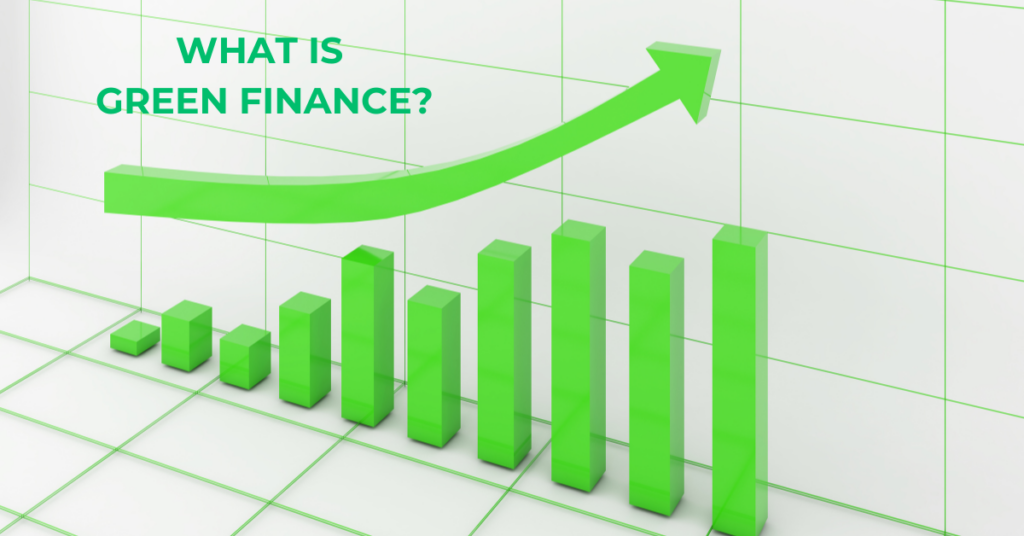What is Green Finance? What are its Career Prospects?

- What is Green Finance and Why is it Gaining Importance in the Finance Sector?
- What are the Career Prospects and Growth Potential in the Field of Green Finance?
- How Can Finance Professionals Transition Into a Career in Green Finance?
- What Skills and Qualifications are Required to Excel in Green Finance?
- What are the Main Challenges and Risks Associated With a Career in Green Finance?
India aims to achieve net-zero emissions by 2070. This pursuit is driven by increasing concerns about climate change and increasing investor demand for sustainable solutions. This is further giving rise to the concept of green finance. So, what exactly is green finance, and what skills and qualifications do you need to thrive in this emerging field? We delve into the world of green finance, exploring its opportunities, challenges, and the essential ingredients for a successful career path.
What is Green Finance and Why is it Gaining Importance in the Finance Sector?

Essentially, green finance refers to financial instruments and services specifically designed to support environmentally friendly projects and activities. Think of loans for renewable energy projects, bonds targeting sustainable infrastructure, or sustainable investments in clean technologies. Moreover, its importance is ballooning for several key reasons:
1. Climate Change Urgency
Rising awareness of climate change demands action. To that end, green finance helps fund the transition to a low-carbon economy, mitigating environmental damage and building resilience.
2. Investor Demand
Socially conscious investors increasingly seek sustainable options. As a result, green finance provides attractive returns while aligning with their values, creating a win-win scenario.
3. Regulatory Push
Governments worldwide are implementing policies and regulations encouraging green finance. This further creates incentives for financial institutions to embrace sustainable practices.
4. Long-Term Benefits
Green projects often provide long-term economic benefits, such as reduced energy costs and improved resource efficiency. Consequently, this attracts investors seeking stable returns.
5. Reputational Advantage
Embracing green finance enhances a financial institution’s reputation and brand image, attracting eco-conscious customers and partners.
ALSO READ: Highest-Paying Jobs in Commerce That Ensure You Get What You Deserve
What are the Career Prospects and Growth Potential in the Field of Green Finance?
As the world increasingly focuses on sustainability and combating climate change, the demand for professionals in green finance is also expected to rise. Given below are some of the career prospects and job roles in the field:
1. Sustainable Investment Analyst
They are responsible for analyzing investments from the perspective of ESG (environmental, social, and governance) criteria.
2. Renewable Energy Project Manager
Such professionals oversee the development and implementation of renewable energy projects such as solar or wind farms.
3. Environmental Risk Analyst
They evaluate and manage the environmental risks associated with financial investments.
4. Green Bond Specialist
These specialists facilitate issuing and trading green bonds, which fund environmentally friendly projects.
5. Climate Change Consultant
A climate change consultant advises businesses and organizations on strategies to mitigate climate change risks and capitalize on opportunities.
6. Corporate Sustainability Manager
They develop and implement sustainability initiatives within organizations.
7. Carbon Markets Specialist
They manage transactions and trades in carbon markets to reduce greenhouse gas emissions.
These roles offer diverse opportunities for professionals with backgrounds in finance, environmental science, sustainability, and related fields.
ALSO READ: Finance vs. Accounting: Which Career Path Will Help You Succeed?
How Can Finance Professionals Transition Into a Career in Green Finance?

Dreaming of a career in sustainable finance? This is your path to it:
1. Knowledge is Power
Master ESG (Environmental, Social, and Governance) criteria, the cornerstone of sustainable investing. Also, explore green bonds, climate finance, and renewable energy finance through specialized courses or the CFA ESG Certificate.
2. Experience Matters
Volunteer with organizations focused on environmental impact investing. You can also intern with a sustainable finance firm or offer freelance services to green startups.
3. Network Smartly
Attend multiple sustainable finance career conferences. Join professional associations dedicated to renewable energy finance or ESG, and connect with experts. In addition, build your network, unlock hidden opportunities, and find mentors.
4. Upskill Strategically
Sharpen that technical toolkit. Learn climate risk modeling, green bond analysis, and impact investing methodologies. This will help you become a specialist in a niche area within sustainable finance.
5. Market Yourself Right
Highlight ESG knowledge and sustainable investment experience on the resume and LinkedIn profile. Emphasize your passion for the environment and commitment to a sustainable finance career.
Most importantly, understand that transitioning takes time and effort. By combining knowledge, experience, and strategic networking, you can pave a path to a fulfilling career in sustainable finance, shaping a greener future, one environmental impact investing at a time.
ALSO READ: Top 10 Finance Skills to Keep You Updated
What Skills and Qualifications are Required to Excel in Green Finance?
Skills Required to Excel in Green Finance
1. Sustainability Expertise
Understand ESG (Environmental, Social, and Governance) factors, their impact on financial analysis, and the various frameworks used to assess them.
2. Financial Acumen
A strong foundation in core finance principles is crucial, including financial modeling, valuation, and risk management, as is an understanding of sustainable investment strategies.
3. Climate Finance Knowledge
In-depth understanding of climate change’s financial implications, climate risk analysis, and financing mechanisms will help plan renewable-energy and climate-resilient projects.
4. Regulatory Awareness
Stay updated on evolving regulations and policies influencing green finance, including green bond standards, tax incentives, and carbon pricing mechanisms.
5. Data Analysis
Develop the ability to analyze complex environmental and social data, utilize sustainability reporting frameworks, and apply quantitative tools for impact measurement.
6. Communication and Networking
Excellent communication skills are necessary to explain complex financial and sustainability concepts to diverse stakeholders. Furthermore, strong networking abilities help to build relationships within the green finance ecosystem.
Qualifications for Green Finance Careers
1. Finance-Related Degrees
CFA (Chartered Financial Analyst), CAIA (Chartered Alternative Investment Analyst), or equivalent qualifications provide a strong foundation.
2. ESG-Specific Certifications
CFA ESG Certificate, Principles for Responsible Investment (PRI) Associate Certificate, or similar certifications demonstrate focused knowledge.
3. Master’s Degrees
Specialized programs in sustainable finance, environmental economics, or climate finance offer advanced knowledge and credentials.
ALSO READ: How to Manage Project Finances: A Comprehensive Guide for Finance Managers
What are the Main Challenges and Risks Associated With a Career in Green Finance?
While green finance offers a rewarding and impactful career path, it is not without its challenges and risks:
1. Emerging Field
The field is still evolving, leading to unclear career paths and limited access to senior roles. Therefore, adaptability and a willingness to learn new things are crucial.
2. Data and Transparency
Incomplete or inconsistent data on environmental and social impacts can hinder accurate analysis and decision-making.
3. Greenwashing
Overstating green credentials can damage an organization’s reputation and trust. Therefore, strong ethical principles and robust due diligence are key.
4. Impact Measurement
Attributing specific environmental or social outcomes to financial decisions can be complex. To that end, understanding impact measurement frameworks and being comfortable with uncertainty is important.
5. Market Fluctuations
Sustainable investments, like renewable energy projects, can be susceptible to market fluctuations and policy changes. As a result, risk management and diversification are crucial.
6. Competition
As the field grows, competition for jobs and funding can be intense. Thus, staying informed, networking, and honing your unique skills are essential for standing out.
Embracing lifelong learning, navigating uncertainties, and demonstrating commitment to ethical practices are key to success in this exciting and evolving field.
The green finance landscape constantly evolves, demanding a commitment to lifelong learning and adaptation. If you’re eager to make a positive impact while building a rewarding career, consider enrolling in Emeritus’ specialized finance courses and take the first step toward your green finance future!
Write to us at content@emeritus.org





